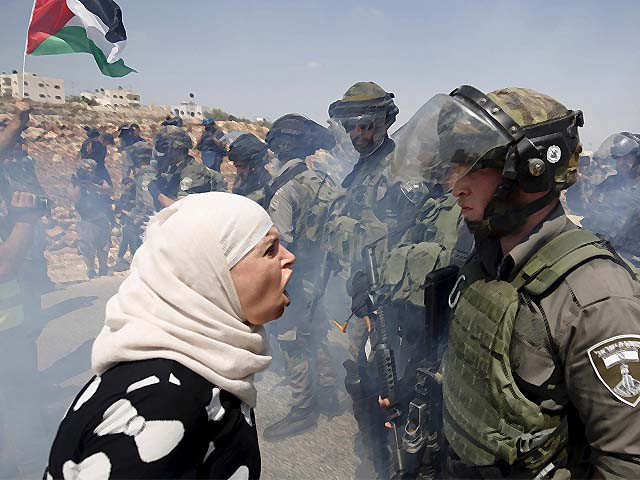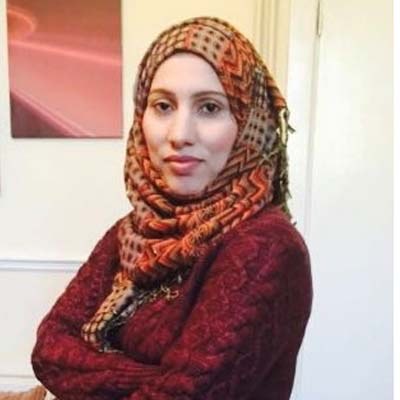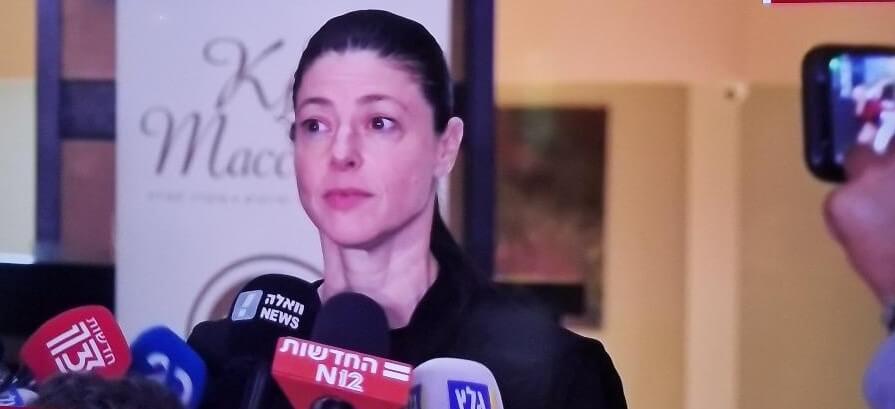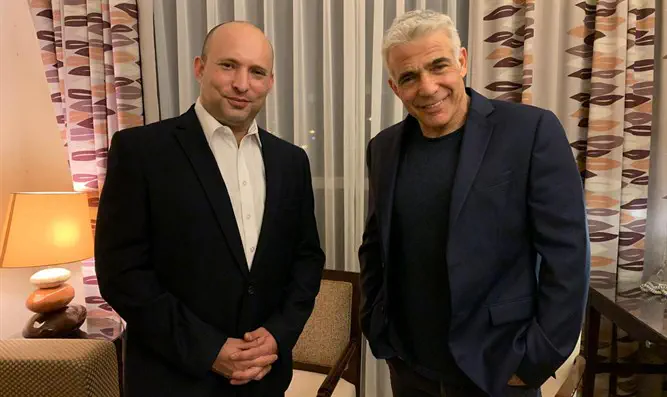It is incumbent on Muslims to learn from the Black Lives Matter movement
Shahjhan Malik June 02, 2021

A Palestinian woman argues with an Israeli border policeman in the West Bank. PHOTO: REUTERS
May 25, 2021 was the first death anniversary of George Floyd. His murder at the hands of the Minneapolis police department has been memorialised in the United States and around the world. His death began a movement which posed direct and difficult questions regarding the structure of white supremacy in America and elsewhere. “Black Lives Matter” is a rallying cry that has echoed across every corner of the globe: it not only encompasses the plight of African Americans, it also applies to minorities in Europe and Australia.
While it’s important to note that “Racism” should be scrawled on George Floyd’s death certificate as the cause of his untimely demise, there is another form of discrimination which is proving deadly too. It’s time to say just as loudly, Muslim Lives Matter.
It’s been difficult to escape the recent images coming from Gaza. What is at the root of the conflict between Hamas and Israel? While land is certainly a major part of it, why were the Palestinians moved off that land? It was because their presence, as Arabs and mainly Muslim, precluded the possibility of the Jewish state that Israel’s founders wished to build. The walls that Israel builds around Palestinian territories is further evidence of this exclusionary policy: yes, there are Israeli Arabs and they have political parties. However, their participation in Israeli political life is the exception rather than the rule. For the most part, Palestinians lead different lives on the same land. The figures around coronavirus vaccination make this particularly clear: according to Reuters, only 5.1% of the population of the Palestinian territories have been vaccinated. Israel, in contrast, has vaccinated 58.3% according to the same source.
Israel is one example, however, it’s worth looking at recent trends. Remember, one of the first actions of the Trump Administration was to ban travellers to the United States from predominantly Muslim countries. On March 17, 2021 the Secretary General of the United Nations (UN) cited a report from the UN Human Rights Council which stated that Islamophobia had risen to “epidemic” proportions. We have seen France turn on Muslim communities’ practices and beliefs in the name of secularism. We bear witness to on-going prejudices deeply embedded in Western societies. There is a patronising assumption among many in the West that because Muslim women wear scarves as a symbol of our faith, that we are somehow downtrodden and need to be liberated to be just like Westerners. We would choose this, the assumption goes, if only we had the ability to make that selection.
The bafflement and misunderstanding of some politicians leads directly into dehumanisation: witness Prime Minister Boris Johnson’s remarks that women who don the veil look like letterboxes. It’s not altogether clear that he has repented these remarks: he recently was visited by Hungary’s Prime Minister, Victor Orban, whose government has decidedly Islamophobic views.
So long as there is incomprehension and arrogance, there will be bigotry, stretching all the way from Israel to across the Atlantic, to the furthest corners of the globe. Bigotry leads to “othering”, the process by which the views and lives of an entire group are discounted. This discounting is the route to maltreatment, or worse.
The Muslim community in Great Britain and elsewhere does do outreach programmes: I am aware of open-door events, whereby people from other communities are invited into the mosque or to share Iftar during Ramadan. I appreciate the non-Muslims who go to these events: they may be catalysts for a better society. I just don’t believe there are enough of them. Boris Johnson can say what he likes, and yet not suffer terrible consequences in the polls: this makes Islamophobia appear to be the last acceptable form of overt bigotry.
I believe it is incumbent on Muslims to learn from the Black Lives Matter movement. We should record the toll that Islamophobia has taken, memorialise its victims, talk about our lives and the discrimination we face. We should stand up for our values too. For example, I wear a headscarf not because I feel oppressed, but because when it comes to the Western game of chasing their standards of beauty, I have opted out. I have decided to follow the dictates of my God. I want to be valued for my intellectual contributions, not judged on how my hair looks on any particular day. I am free: I choose modesty. So long as that is my choice, that should inspire neither pity nor condescension. Nor should any of the choices that Muslims make, whether that is refraining from alcohol or pork, be seen through any other lens. None of this means Islam is not compatible with modernity: I myself have advanced degrees and a career. Thus, there should be no “othering”, rather, there should be tolerance, understanding, and the equality of consideration that flows from both.
Too often, however, I see Muslims apologising: whenever there are extremists in our midst, we feel compelled to denounce them to be good citizens. It is right that we do so. However, have the religious right in America denounced those who stormed the Capitol on January 6th? If we are to denounce extremism, surely there must be equality in this too. Surely, we should say so.
I believe that God created the world for all of us, regardless of faith, race, or creed. I believe He made us to serve Him and each other. We do not serve anything except the darker corners of our nature if we exclude and denigrate. That, in my opinion, is not in His plan. Most faiths and ethical frameworks hold the equality of mankind to be sacrosanct: these state Muslim Lives Matter. We should say so too, via the way we live our lives, live proudly in our faith, and continue to push at the barriers which exclude us from any corner of mainstream society. Until we do, bigotry will persist, as it is a convenient crutch for those who want to blame others for those who want to explain away difficulty in their lives. We should not let it.

WRITTEN BY:
Shahjhan Malik
The writer is a practicing solicitor in England. She is a Dual Qualified Lawyer, independent business woman, Human Rights and Women’s Rights Activist from Lahore, Pakistan. She presently resides and works in the United Kingdom. She tweets @SHAHJHAN_MALIKK.


















